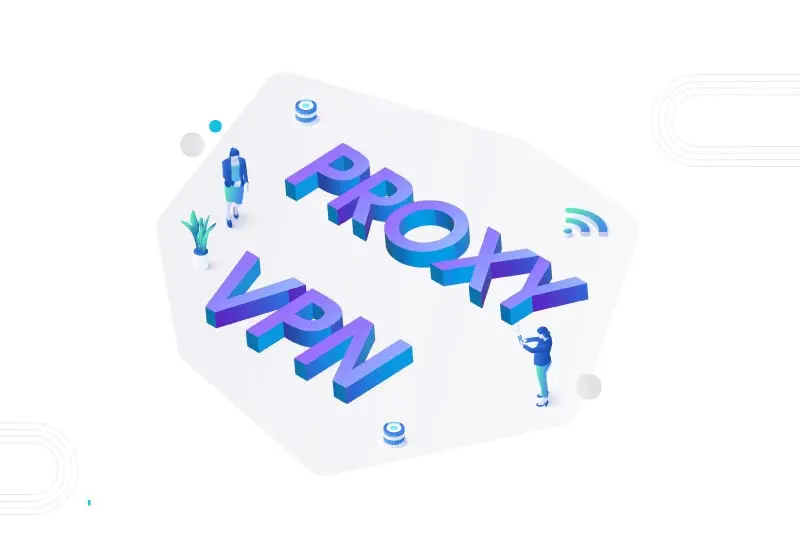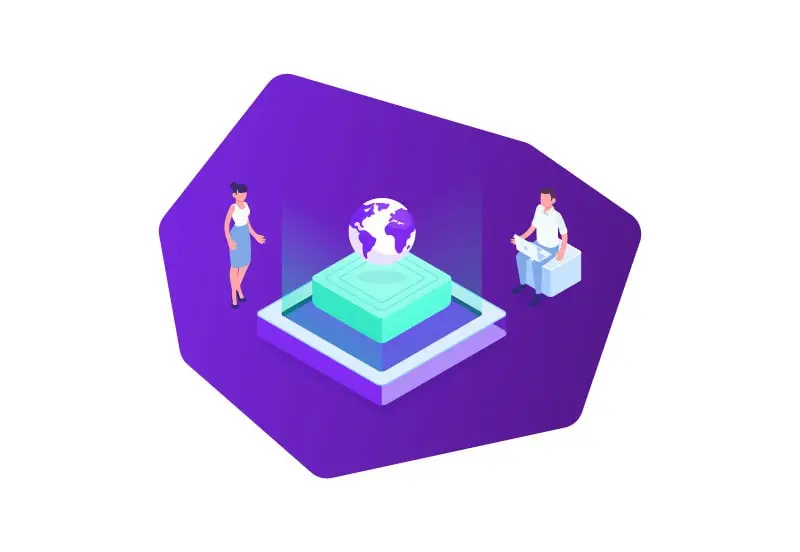In today’s digital age, protecting your online privacy and security has become a top priority. As you navigate the vast landscape of the internet, you may have come across two tools that are commonly used to achieve this: proxies and VPNs. While both serve the same purpose, there are distinct differences between the two that you should be aware of.

In this article, we’ll be diving deep into the world of Proxy vs VPN, exploring the advantages and disadvantages of each, as well as when to use one over the other. So, buckle up and get ready to discover which tool is the best fit for your online needs!
What are Proxies and VPNs?
To put it simply, a proxy is a server that acts as an intermediary between your device and the internet. When you connect to the internet using a proxy, your requests are first sent to the proxy server, which then sends them to the destination website on your behalf. This means that your IP address is masked, and your online activity is routed through the proxy server, making it difficult for anyone to track your online activities. So, what is a proxy good for? Proxies can be used to bypass internet censorship, access geo-restricted content, and protect your online privacy.
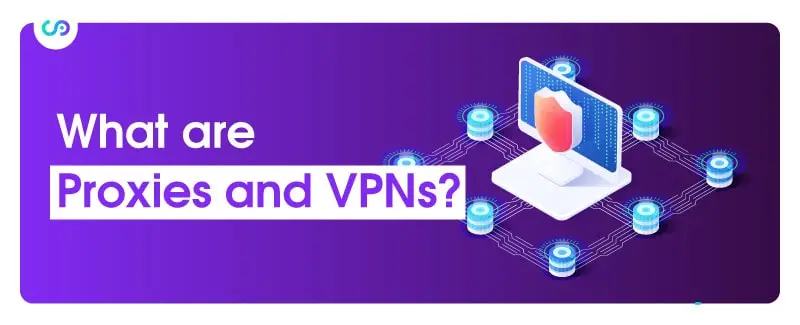
On the other hand, a Virtual Private Network (VPN) is a tool that encrypts your internet connection, creating a secure and private tunnel between your device and the internet. When you connect to a VPN, all of your internet traffic is routed through the VPN server, which encrypts your data and makes it unreadable to anyone who may be trying to intercept it. So, what is a VPN good for? VPNs can be used to protect your online privacy, bypass geo-restrictions, and access content that may be blocked in your region.
While both proxies and VPNs serve a similar purpose, they work in different ways and have their own unique advantages and disadvantages. In the next section, we’ll dive deeper into the differences between the two.
Types of Proxies and VPNs
When it comes to proxies, there are several different types available, each with its own unique features and benefits. One of the most common types of proxies is a static proxy. So, what is a static proxy exactly? A static proxy, also known as a dedicated proxy, is a proxy that has a fixed IP address that does not change. This means that every time you connect to the internet using a static proxy, your requests will always be sent through the same IP address.
Another type of proxy is a rotating proxy, which is a proxy that automatically changes its IP address at set intervals. This can be useful for tasks such as web scraping, as it helps to avoid IP bans and reduces the risk of detection. Residential proxies are another type of proxy that is highly sought after. These proxies are IP addresses assigned to real residential homes and are more difficult to detect and block than other types of proxies.
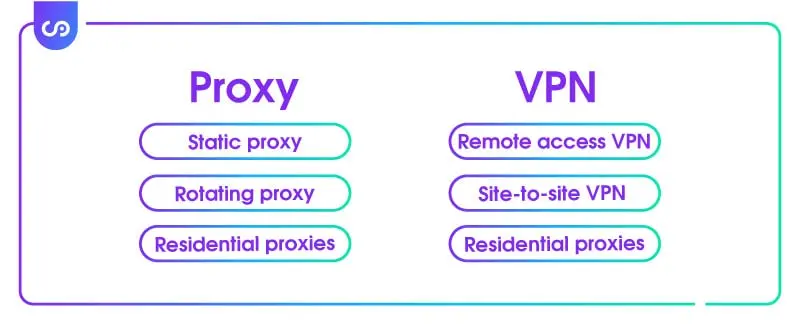
When it comes to VPNs, there are also different types available. One of the most common types of VPN is a remote access VPN, which is used to allow remote users to securely connect to a corporate network. Another type of VPN is a site-to-site VPN, which connects two or more local networks together over the internet.
Ultimately, the type of proxy or VPN you choose will depend on your specific needs and requirements. Whether you need a static proxy for a specific task, or a VPN to securely connect to your company’s network, there are plenty of options available to suit your needs.
Proxy vs VPN Speed and Security
When it comes to speed and security, both proxies and VPNs have their own advantages and disadvantages. Proxies are generally faster than VPNs, as they only reroute your web traffic through the proxy server and do not encrypt your data. This means that there is less data to process, resulting in faster speeds. Additionally, proxies can also help to improve website load times by caching frequently accessed data.
However, when it comes to security, VPNs are the clear winner. VPNs encrypt all of your internet traffic, making it virtually impossible for anyone to intercept or view your data. This is especially important if you are using public Wi-Fi or accessing sensitive information, such as online banking or medical records. VPNs also offer additional security features, such as kill switches and leak protection, which can help to ensure that your data remains secure even if your VPN connection drops.
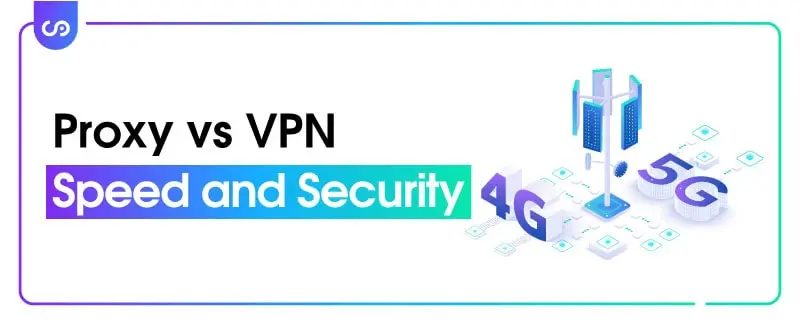
While proxies may be faster than VPNs, they do not offer the same level of security. Proxies only mask your IP address and reroute your web traffic, but they do not encrypt your data. This means that anyone with the right tools and knowledge can intercept and view your data. Additionally, free proxies can be risky to use, as they may contain malware or be operated by cybercriminals looking to steal your data.
In summary, if speed is your top priority, then a proxy may be a good option for you. However, if you prioritize security, then a VPN is the way to go. It’s important to weigh the pros and cons of each option and choose the one that best fits your specific needs.
Proxy vs VPN for Online Privacy
In today’s digital age, online privacy has become a growing concern for many people. Whether you are browsing the web, shopping online, or accessing sensitive information, it’s important to take steps to protect your privacy. Both proxies and VPNs can help to provide online privacy, but they work in different ways.
Proxies mask your IP address and reroute your web traffic through a remote server, making it more difficult for websites and advertisers to track your online activities. However, proxies do not encrypt your data, which means that your information can still be intercepted and viewed by third parties.
On the other hand, VPNs encrypt all of your internet traffic, making it virtually impossible for anyone to intercept or view your data. This means that even if someone were able to intercept your data, they would not be able to read it. Additionally, VPNs also mask your IP address and reroute your web traffic, making it more difficult for websites and advertisers to track your online activities.
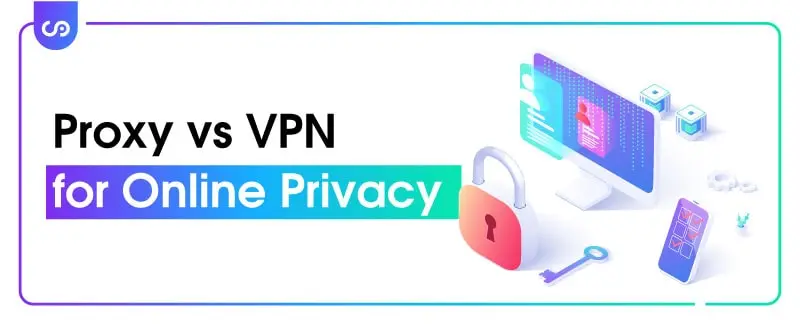
When it comes to online privacy, it’s important to consider your specific needs and requirements. If you are simply looking to mask your IP address and avoid being tracked by websites and advertisers, then a proxy may be a good option for you. However, if you want to ensure that your data remains private and secure, then a VPN is the way to go.
It’s also important to note that not all VPNs and proxies are created equal. Free proxies and VPNs may seem like attractive options, but they often come with a host of risks and limitations. For example, free VPNs may log your data or sell your information to third parties, while free proxies may contain malware or be operated by cybercriminals looking to steal your data. It’s important to do your research and choose a reputable provider that prioritizes your privacy and security.
Proxy vs VPN for Streaming and Gaming
When it comes to streaming and gaming, proxies and VPNs can be useful tools for accessing content that may be restricted in your region. However, there are some important differences between the two that you should be aware of.
Proxies can be useful for accessing geographically restricted content, such as streaming services or online games that may not be available in your region. By rerouting your web traffic through a remote server in a different location, proxies can help you access content that may otherwise be blocked. However, using a proxy can sometimes result in slower internet speeds, which can be frustrating when you’re trying to stream or game.
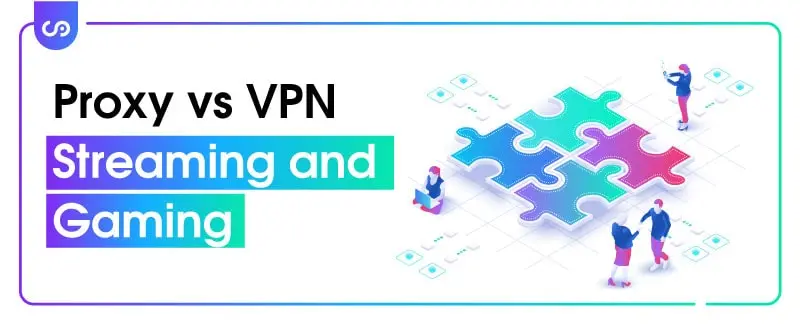
VPNs can also be useful for accessing geographically restricted content, but they offer the added benefit of encrypting your data and protecting your online privacy. This can be especially important if you’re streaming or gaming using public Wi-Fi networks, which can be vulnerable to cyber attacks.
When it comes to streaming and gaming, it’s important to choose a proxy or VPN that is optimized for these activities. Some providers may offer dedicated streaming or gaming servers, which can help to improve your connection speeds and reduce lag. It’s also important to choose a provider with a wide range of server locations, as this can help to ensure that you have access to the content you want.
Ultimately, whether you choose to use a proxy or VPN for streaming and gaming will depend on your specific needs and requirements. If you’re simply looking to access content that may be restricted in your region, then a proxy may be sufficient. However, if you’re concerned about your online privacy and security, or you’re using public Wi-Fi networks, then a VPN is likely the better choice.
Proxy vs VPN for Business Use
Proxies and VPNs can be useful tools for businesses that need to protect their data and maintain secure connections. However, there are some important differences between the two that businesses should be aware of.
Proxies are often used by businesses to help manage internet usage and improve network performance. By routing web traffic through a proxy server, businesses can improve their network speeds and reduce bandwidth usage. Proxies can also be used to restrict access to certain websites or types of content, which can help to improve employee productivity and reduce security risks.
VPNs are often used by businesses to maintain secure connections between remote employees and the company’s internal network. By encrypting all data traffic between remote employees and the company’s servers, VPNs can help to protect sensitive information from cyber threats. This can be especially important for businesses that deal with sensitive customer data or financial information.
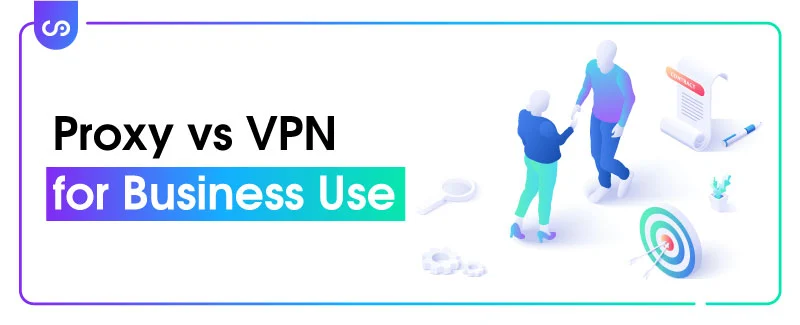
When it comes to choosing between proxies and VPNs for business use, it’s important to consider your specific needs and requirements. If you’re primarily concerned with managing internet usage and improving network performance, then a proxy may be sufficient. However, if you need to maintain secure connections between remote employees and your company’s internal network, then a VPN is likely the better choice.
It’s also important to choose a provider that offers reliable and secure services, with robust encryption protocols and dedicated support teams. Additionally, businesses should ensure that they comply with any relevant data protection laws and regulations, to avoid potential legal issues.
Ultimately, whether you choose to use a proxy or VPN for business use will depend on your specific needs and requirements. Both can be useful tools for improving network performance and protecting your data, but it’s important to choose the right one for your business.
Residential Proxy vs VPN
Residential proxies and VPNs are two popular tools that can be used to protect your online privacy and security. However, there are some key differences between the two that users should be aware of.
A residential proxy is a type of proxy server that is created using the IP address of a residential internet user. These proxies are often used for web scraping, online marketing, and social media management. They can provide users with a high level of anonymity, as the IP address is associated with a legitimate residential internet user rather than a data center.
On the other hand, a VPN is a virtual private network that creates an encrypted connection between your device and a remote server. This connection helps to protect your online activity from prying eyes and can be especially useful for users who want to access geo-restricted content or maintain privacy while using public Wi-Fi.
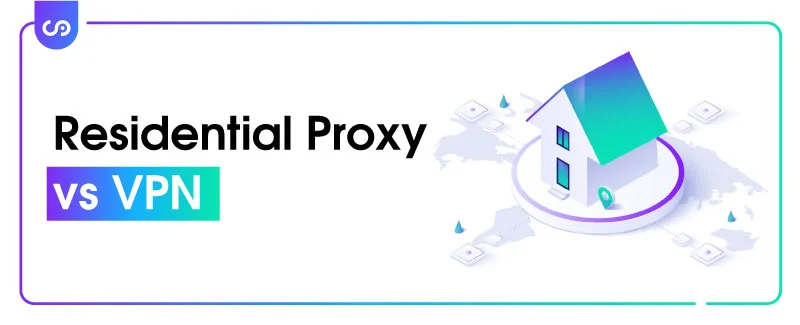
While both residential proxies and VPNs can be effective tools for protecting your online privacy and security, they are used for different purposes. Residential proxies are often used for web scraping and other similar activities, while VPNs are used for maintaining privacy while accessing the internet.
Another important difference between the two is the level of encryption that they provide. While residential proxies may offer some level of encryption, it is typically not as strong as the encryption provided by a VPN. VPNs use advanced encryption protocols to protect your online activity from cyber threats, making them a more secure option.
When deciding between a residential proxy and a VPN, it’s important to consider your specific needs and use case. If you are looking for a way to maintain online privacy and security while accessing the internet, a VPN may be the better option. However, if you are looking for a way to scrape data from websites or manage social media accounts, a residential proxy may be more suitable.
Ultimately, both residential proxies and VPNs can be useful tools for protecting your online privacy and security. The key is to understand their differences and choose the one that best fits your needs.
Proxy Server vs VPN Server
When it comes to proxies and VPNs, understanding the difference between the server types is important for choosing the right tool for your needs.
A proxy server acts as an intermediary between your device and the internet. When you make a request, the request goes through the proxy server, which can mask your IP address and provide other benefits such as caching and content filtering. Proxy servers are commonly used in organizations to control internet access and improve network performance.
A VPN server, on the other hand, creates an encrypted connection between your device and the remote server. This connection provides a high level of security, making it difficult for anyone to intercept your online activity or access your personal information. VPNs are commonly used by individuals to access geo-restricted content and maintain online privacy while using public Wi-Fi.
One key difference between proxy servers and VPN servers is the level of encryption they provide. While proxy servers can mask your IP address and provide some level of anonymity, they do not encrypt your online activity. VPNs, on the other hand, use advanced encryption protocols to protect your online activity from prying eyes, making them a more secure option.
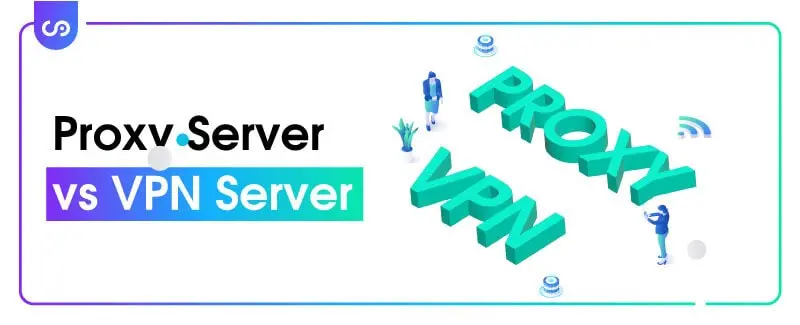
Another difference is the way they handle traffic. A proxy server handles traffic on a per-application basis, meaning that only traffic for the specific application being used is sent through the proxy. A VPN server, on the other hand, handles all traffic from your device, ensuring that all online activity is protected.
When choosing between a proxy server and a VPN server, it’s important to consider your specific needs. If you’re looking to control internet access in an organization or improve network performance, a proxy server may be the better option. However, if you’re looking to maintain online privacy and security, a VPN server is the way to go.
In summary, while proxy servers and VPN servers share some similarities, they have key differences in terms of security, encryption, and traffic handling. It’s important to understand these differences and choose the right tool for your specific needs.
Is Proxy Better Than VPN?
The answer to whether a proxy is better than a VPN or vice versa depends on what you’re trying to achieve. Both tools have their strengths and weaknesses, and the better option ultimately depends on your specific needs.
For example, if you’re looking for a tool to improve network performance and control internet access in an organization, a proxy server may be the better option. Proxies can cache frequently accessed content, reducing the amount of traffic on the network and improving performance. They can also filter content, blocking access to certain websites or types of content.
On the other hand, if you’re looking for a tool to maintain online privacy and security, a VPN is the way to go. VPNs use advanced encryption protocols to protect your online activity from prying eyes, making it difficult for anyone to intercept your data or access your personal information. They also mask your IP address, making it difficult for websites and advertisers to track your online activity.
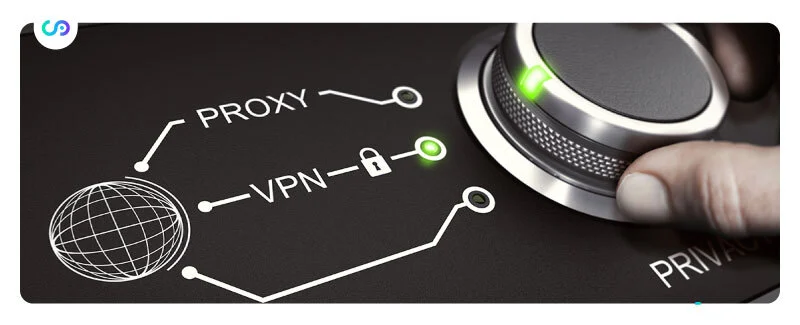
Another factor to consider is speed. While proxies can improve network performance, they can also slow down your connection if the proxy server is located far away or is overloaded with traffic. VPNs can also slow down your connection, but this can be mitigated by choosing a server location closer to your physical location.
In terms of ease of use, proxies are generally easier to set up and use than VPNs. Proxy settings can be configured directly in the browser, while VPNs typically require a dedicated application or manual configuration.
Ultimately, whether a proxy or VPN is better for you depends on your specific needs. If you’re looking for improved network performance and content filtering, a proxy may be the way to go. If you’re looking for online privacy and security, a VPN is the better choice. Consider your priorities and choose the tool that best fits your needs.
Conclusion
The decision between using a proxy or VPN ultimately depends on your specific needs and priorities. Both tools have their strengths and weaknesses, and it’s important to weigh the advantages and disadvantages of each. Proxies are generally easier to set up and can improve network performance, but may not offer the same level of privacy and security as VPNs. VPNs, on the other hand, offer advanced encryption and the ability to mask your IP address, but may slow down your connection and require more technical knowledge to set up. Whether you choose a proxy or VPN, it’s important to understand the differences and similarities between the two and choose the tool that best fits your needs.
FAQs
What is the difference between a proxy and a VPN?
A proxy acts as an intermediary between your device and the internet, while a VPN encrypts your internet traffic and routes it through a remote server to protect your online privacy and security.
Can I use a proxy and a VPN at the same time?
Yes, it is possible to use a proxy and a VPN simultaneously. However, it may affect your internet speed and performance.
Which one is better for security: a proxy or a VPN?
A VPN is generally considered better for security as it provides strong encryption and hides your IP address, while a proxy may not provide the same level of security.
Can a proxy be used for online privacy?
Yes, a proxy can be used to enhance online privacy by masking your IP address and hiding your online activities from prying eyes.
Is it legal to use a proxy or a VPN?
Yes, it is legal to use a proxy or a VPN in most countries. However, using them for illegal activities is not allowed. It’s important to check the laws in your specific country or region.

